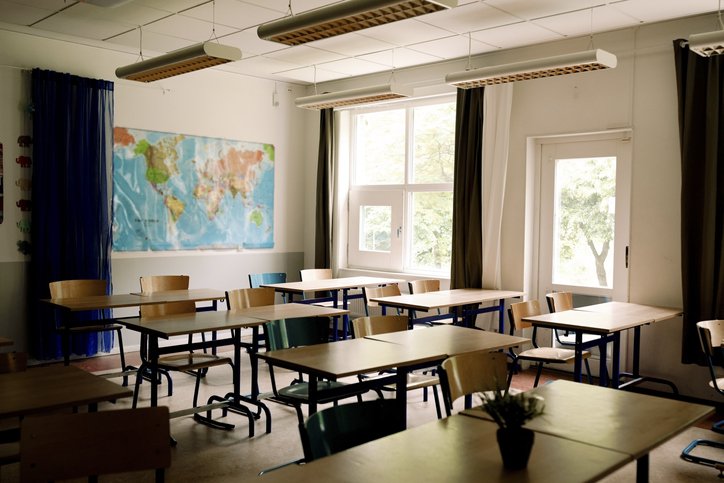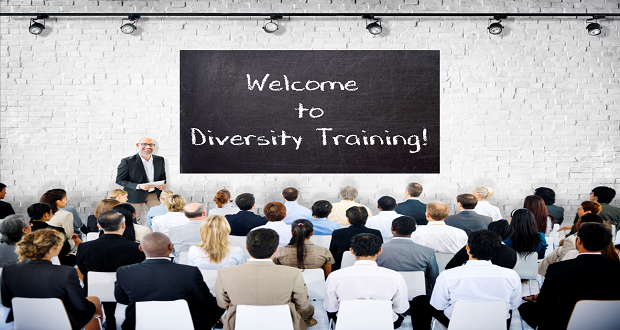
On a recent night in December, inside the climate-controlled confines of a Sarasota County Florida School Board Meeting, the superintendent, board members, and school officials sat behind an arc-shaped dais, and faced a tough crowd.
Seated a few feet away, parents, teachers, and supporters couldn’t wait to share their displeasure and dismay at the school board’s recent decision to ask for the superintendent’s resignation. The board majority wanted to terminate him, not for some salacious scandal or financial malfeasance, but for doing his job.
After hours of public comments, the superintendent handed in his resignation. But not before calling out the Proud Boys-endorsed, Governor Ron DeSantis-backed school board members who voted him out. He called them out for their dishonesty. He called them out for their divisiveness. But most of all, he called them out for putting politics before kids.
Volatile scenes like this have become all too common in Florida education these days, where school programs, superintendents, and teachers are being targeted by extremist conservative school boards, parents groups, and supporters in a coordinated effort to inject fear and politics into our public schools.
Think of these school board members and their supporters as a bunch of broflakes, overreacting to any perceived threat to “Family Values,” “Parents Rights,” or “Western Civilization” (white culture) in our schools. They’ve turned school board meetings into hostile three-ring circuses. And intentionally or not, that mood has trickled down, invading our schools, making them unsafe — especially for our BIPOC and LGBTQ+ students and families.
Despite these realities, I feel energized and hopeful. Why? Because I don’t want to work with anyone who doesn’t see value in diversity, inclusion, equity, and belonging. Time is of the essence, and Karens are a waste of time.
Also, I don’t teach in fear. There are far too many stories of red state educators giving up effective lesson plans, book assignments, and social emotional learning activities because they’re worried they’ll be branded as “woke” or a “groomer,” or trying to “indoctrinate” their students. A lot of our teachers lack support, or feel silenced. Others don’t know where to turn for help. Or worse, they’ve given up.
My advice?
Don’t.
Give.
Up.
Don’t give up on our kids.
And don’t give up on our schools.
Instead, take a deep breath, then let it out.
Accept that divisive politics are part of the curriculum for the foreseeable future in red states like Florida. Accept that homophobic state statutes, racist and antisemitic rhetoric, banned book edicts and the like will bring more fear and confusion to our kids, their parents, and our schools.
What I’ve learned is that with acceptance comes focus. Once I accepted the situation, I was able to lean in on “why” I got into education in the first place: to help students feel better so they can learn better. That truth re-energized me and allowed me to refocus my efforts away from hurt and hate, and closer to hope.
So, now I smile at the fact that despite their talk of “keeping our schools safe” these MAGA-inspired extremist school board members and their supporters, like Moms For Liberty, couldn’t care less about student well-being, belonging, or safety. They just want the power to scare and confuse everybody.
For them, it’s about creating their own little tribunals — school boards, PTOs, hospital boards, state legislatures — where they can get back at those evil “liberals” who taught their kids why Black Lives Matter, or that rainbow families are no different than other ones, or worse, made them put on masks during a global pandemic.
That recognition makes me smile. Because it’s not only a chance for educators like myself to focus on helping marginalized students, but it’s an even bigger opportunity for nonprofits, foundations, and community groups who support this important work. Working together, these organizations can help provide spaces where all students can be seen, heard, and celebrated.
It takes imagination, collaboration, and hard work. How do I know? Because I’m fortunate enough to be doing this work right now, collaborating with some of the most engaged foundations, nonprofits, and community groups, creating and sustaining a range of indoor and outdoor arts education projects. Some of our programs promote literacy, others are focused on social-emotional learning, and still others promote mindfulness.
Let me share an example of an amazing outdoor arts-ed program I helped develop that’s focused on providing quality education experiences to historically excluded students.
Launched in March 2021, this community-based project grew out of a partnership between two organizations that couldn’t be more different. One partner is an African American-led nonprofit focused on providing Sarasota’s Black community with housing, food, and education services. The other is a predominantly white institution with a history of providing arts-ed experiences to local families throughout the region. Where their missions intersect is in their commitment to providing quality education to area students.
That common ground has helped grow our free outdoor event from a handful of children at the start, to a monthly arts-ed celebration attracting dozens of students, and featuring teaching artists, fun activities, and free food. Listening to the needs of the children, parents, and community has also been crucial to our growth. They’ve helped us choose healthier lunches, and culturally relevant themes. All of it makes for an incredible collaborative effort centered on giving the best education experience to the students who attend.
This is just one of many feel-good education stories happening off public school campuses throughout Florida, and across the country. Education initiatives sponsored by large foundations and nonprofits, and smaller programs closer to home, are using creativity, collaboration, and commitment so every student can experience the joys of quality learning without the drama.
All of this makes me smile. But what I’m most excited about is the opportunity being offered right now to nonprofits, foundations, and community groups. Now is the time for a compassionate and intentional response to the continued extremism and politics invading our schools. We need your help to continue creating and maintaining spaces that celebrate all of our students — not just privileged white ones.
And while extremist conservative school board members and their radicalized supporters continue their antics, attacking diversity programs and effective partnerships, I choose to ignore that white noise, and put the focus back on our students. Especially our marginalized ones. And that brings a smile to my face.
TAKEAWAYS:
- Connect and collaborate. Especially with those organizations and people who share the same mission as you do. When you focus on the groups who align with your own diversity, inclusion, and equity-centered work, it makes facing challenges and accomplishing goals that much easier.
- Prioritize your wellness. As we all know, doing DEIJ work can be frustrating and exhausting. Burnout is all too common. So, protect your wellness. Take time off. Visit family and friends. Spend time traveling. Find a hobby. Practice yoga and mindfulness. Take a break from social media. Relax and recharge.
- Foundations, nonprofits, and the business community need to step up. This is a golden opportunity to create and strengthen community collaborations that address issues of diversity, inclusion, and equity. It’s time for foundations, nonprofits, and businesses to form new partnerships, create initiatives, and provide funding and resources for this impactful community work.


















